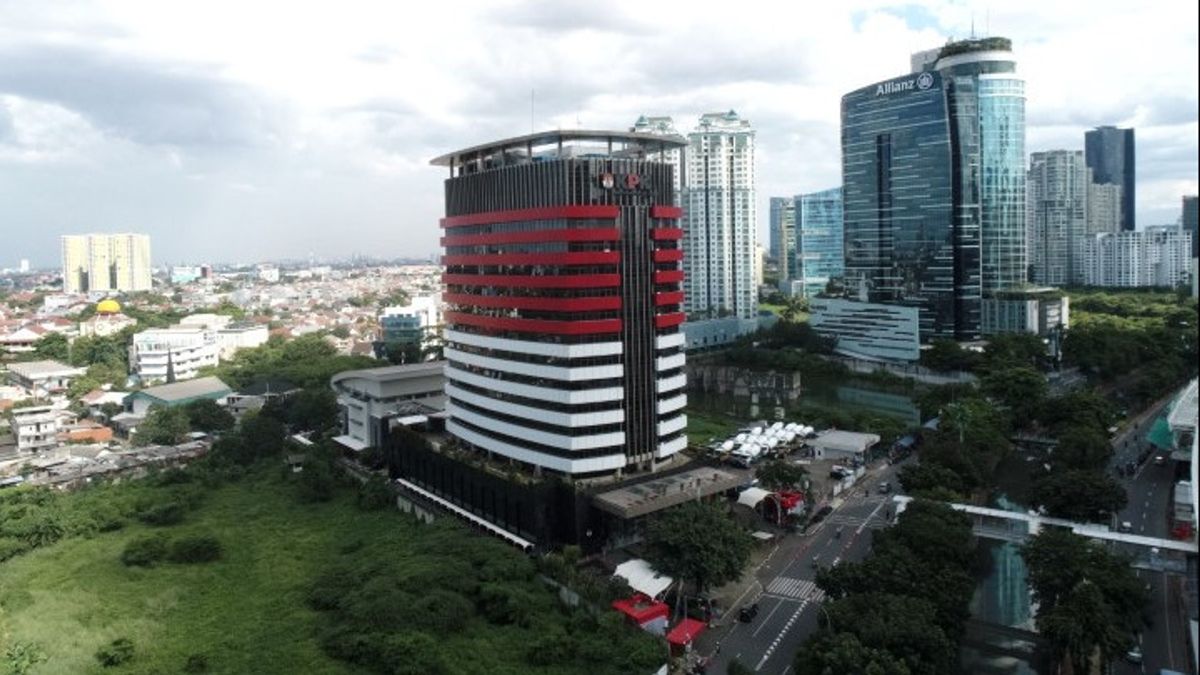JAKARTA - Professor of the Faculty of Law UGM (Gadjah Mada University) Sigit Riyanto is of the view that currently there are two arguments left to defend the fate of non-active employees of the Corruption Eradication Commission (KPK) due to not passing the National Insight Test (TWK).
Sigit said, the first was through the KPK's public information disclosure test, and the second was President Jokowi's attitude towards the final decision on the fate of non-active employees.
"President Jokowi has the opportunity to show his commitment to public aspirations and determine a clear stance for the future of eradicating corruption in Indonesia," said Sigit when confirmed in a written statement, Wednesday, September 15.
Sigit's argument is based on the findings of the Indonesian Ombudsman and the National Human Rights Commission, which respectively found maladministration and human rights violations in the TWK. Although, the findings of the two institutions have been rejected before the Constitutional Court, according to Sigit, the arguments of each of these institutions show that the triangulation of the transfer of the status of KPK employees through the TWK assessment is irrelevant, not credible, and unfair.
"President Jokowi has the opportunity to demonstrate his commitment to public aspirations and determine a clear stance for the future of eradicating corruption in Indonesia," said Sigit.
A number of KPK employees who did not pass the TWK filed a lawsuit for disclosure of information related to the results of the KPK TWK to the Central Information Commission (KIP). This report was submitted by three non-active employees of the Corruption Eradication Commission (KPK), namely Hotman Tambunan, Ita Khoiriyah, and Iguh Sipurba.The narrative that was appointed by the three KPK employees was to obtain the results of the national insight test. Previously, they had requested written approval from the KPK Information and Data Management Officer (PPID) to access the information, but this information was not provided.
"KPK employees have submitted applications through the PPID mechanism in accordance with the law, but the KPK still does not provide information on the results of the TWK," said Hotman in Jakarta, Monday, September 13.
Hotman emphasized that this is as stated in Article 18 Paragraph (2) letter a of Law Number 14 of 2008 concerning Public Information Disclosure (KIP).
In the inaugural session of the Information Commission, the Chairperson of the KIP Board of Commissioners Gede Narayana stated that the lawsuits filed by the three KPK employees were in the form of: (1) the legal basis for determining the elements measured in the TWK assessment; (2) the legal basis for determining the criteria for meeting the requirements (MS) and not meeting the requirements (TMS) in the TWK assessment; (3) the name and certificate of the assessor or interviewer and the institution or institution of origin of the assessor or interviewer; (4) assessor or interviewer working papers; (5) minutes of passing and failing determination by the assessor; and (6) TWK assessment results.
The points of the lawsuit were conveyed by Gede in the virtual session for the Settlement of Public Information Disputes between KPK Employees and the KPK which was broadcast live through the Central Information Commission's Youtube channel on Monday, September 13.
The lawsuit filed by Hotman and his friends is actually in accordance with the available legal channels. However, the public is pessimistic that the KIP institution can be a solution to the KPK TWK problem. In fact, recommendations from the Ombudsman and the Constitutional Court did not apply to the KPK leadership.
Later, senior investigator of the non-active KPK, Novel Baswedan, stated that non-active KPK employees were offered to work in State-Owned Enterprises (BUMN) so that they no longer challenged the assessment results to become KPK ASNs.
According to Novel, the offer was a form of humiliation. "My friends chose the KPK because they wanted to fight for the interests of the state against corruption, not just for work," Novel confirmed, Tuesday, September 14.
He also considered it an arbitrary move. This is considered increasingly real to get rid of KPK employees with integrity.
“We oppose the actions of the leadership that are against the law, arbitrary, illegal and inappropriate, as stated by Komnas HAM to get rid of 75 certain KPK employees, because they destroy hopes of eradicating corruption. So this is not just a work problem,” said Novel.
In contrast to what was sued by non-active employees, Al-Azhar University Indonesia (UAI) Law Expert Suparji Ahmad actually emphasized that the final decision was not in the body of the KPK leadership, but was in the hands of the government. In this case, President Jokowi.
Suparji's argument is based on the decision on the judicial review of Commission Regulation (Perkom) Number 1 of 2021 concerning the Transfer of KPK employees to State Civil Apparatus (ASN) which was submitted by KPK employees some time ago.
According to the Supreme Court's decision, the lawsuit against Commission Regulation No. 1 of 2021 which is the basis for TWK is incorrect. This is because the results of the TWK assessment are not the authority of the KPK, but the government.
"The decision of the Supreme Court (MA), the results of the TWK assessment for KPK employees are the authority of the government. As long as the government, in this case President Jokowi, doesn't make any decisions, it's better if the head of the anti-corruption agency does the same thing," he told the media, Wednesday, September 15.
In line with that,
The English, Chinese, Japanese, Arabic, and French versions are automatically generated by the AI. So there may still be inaccuracies in translating, please always see Indonesian as our main language. (system supported by DigitalSiber.id)












